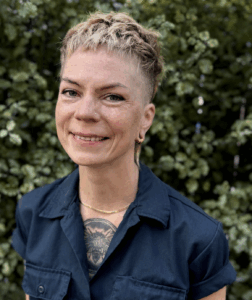JBIMS fosters collaboration and synergy across UC Berkeley and Berkeley Lab, combining strengths in Theory, Technology, Model Systems and Data Science to promote microbiome-based solutions for the health of our community, our ecosystems and our planet.
Integrative Microbiome Science for Discovery, Prediction and Translation:
Microbiome Theory
Coordinating across disciplines to advance and evaluate theories from ecology, evolution, biophysics and thermodynamics to understand and predict microbiome structure and function.
Technology for Microbiomes
Developing and integrating diverse technologies to observe and manipulate microbiomes and their interactions with their environments or hosts.
Data Science for Microbiomes
Building a community of microbiome researchers that promote data science best practices for reproducible and reusable datasets, and develop innovative science to uncover causal mechanisms in microbiomes.
Microbiome Model Systems
Developing and promoting the use of reproducible model systems for the study of microbiomes across scales of complexity.
News & Events
UPCOMING EVENT: JBIMS Industry Mixer 2025

We are excited to announce our second annual JBIMS Industry Mixer, this year sponsored by Switch Bioworks! The mixer will be a vibrant gathering designed to connect local academic researchers and microbiome companies, spark new collaborations, and amplify the impact of our shared work.
Location: Bakar BioEngenuity Hub at UC Berkeley
Date: May 15th, 2025
Time: 1:00 - 6:00 PM
This year’s mixer will feature a dynamic lineup of activities aimed at fostering meaningful connections between academia and industry, including:
- Keynote talks from distinguished leaders across the microbiome science landscape, including Dr. Jay Keasling.
- Poster presentations and lightning talks highlighting cutting-edge research
- A panel discussion featuring local organizations driving innovation in microbiome science and biotechnology.
- Talks on entrepreneurship, offering insights into launching successful start-ups from academic roots.
- Recruitment opportunities for Bay Area scientists ...
Community Spotlights

Read More

Read More

Read More
